How To Fix Missing FREETYPE.DLL Error – SystemDLL.com
Download FREETYPE.DLL and Fix Missing Dll Error
Note: Outbyte PC Repair tool has been proven to identify and fix the FREETYPE.DLL error. See more information about Outbyte and Uninstall Instructions. Please review Outbyte EULA and Privacy Policy.
Introduction
One of the most common errors a Windows user faces is the missing DLL error. This error will simply not let you run the application. When you try to open the application you will notice a pop-up window with the following error message.
'The program can't start because FREETYPE.DLL is missing from your computer'
Don't worry! This is a common issue faced by Windows users all over the world and there are several ways to fix this.
In this detailed post, I'll provide multiple solutions to fix the DLL file not found errors on Windows 11, 10, 8.1, 8, and 7 PCs.
What is a FREETYPE.DLL error?
The term 'DLL' refers to dynamically linked libraries, which may be found in Windows 11, 10, 8, 7, and other previous OS versions. A dynamic link library (DLL) is a collection of small programs that larger programs can load when needed to complete specific tasks. The small program, called a DLL file, contains instructions that help the larger program handle what may not be a core function of the original program. These instructions can be called upon multiple programs simultaneously. When you run a program on any Windows operating system, much of the functionality of the program may be provided by DLLs.
A dependency is created every time a DLL is used by a program. If another program uses a DLL and somehow breaks the dependency between the two programs then the first program will no longer execute. That is when you will see errors like,
'The program can't start because FREETYPE.DLL is missing from your computer. Try reinstalling the program to fix this problem.'
Causes of FREETYPE.DLL Missing Error
The typical reasons for the 'FREETYPE.DLL missing error' on Windows 10, 11, 8, 7, and other versions, are compiled below,
a) Deleted or corrupted FREETYPE.DLL - The DLL file used by a certain program has modified or deleted FREETYPE.DLL.
b) Missing or corrupted files of Microsoft Visual C++ Redistributable - The FREETYPE.DLL file is part of the Microsoft Visual C++ software runtime library. VC++ Runtime libraries are DLL files required to run programs compiled with Microsoft Visual Studio. If some files are missing or if Visual Studio is not installed correctly, then the 'FREETYPE.DLL is missing' error might appear.
c) System is infected with virus or malware – There is a possibility your system is corrupted or damaged with virus/malware. As a result, FREETYPE.DLL may have been damaged or corrupt.
d) Damaged/corrupted System files – If your Windows system files are corrupted after engaging with programs containing a virus or some malicious applications then FREETYPE.DLL might not work correctly.
Some other common FREETYPE.DLL errors include:
FREETYPE.DLL is missing
Cannot register FREETYPE.DLL
Problem starting FREETYPE.DLL
FREETYPE.DLL Access Violation
The procedure entry point FREETYPE.DLL error
FREETYPE.DLL error loading
FREETYPE.DLL crash
Cannot find FREETYPE.DLL
FREETYPE.DLL was not found
FREETYPE.DLL could not be located
FREETYPE.DLL - System Error
The program can’t start because FREETYPE.DLL is missing from your computer. Try reinstalling the program to fix the problem.
Steps to Fix FREETYPE.DLL Missing Error
There are several ways to fix this DLL error and we will be looking at them in detail below.
1. Download FREETYPE.DLL
The FREETYPE.DLL file can be manually downloaded and added/replaced with the missing or corrupt DLL file.
Step 1: Select and download the DLL files from the table below irrespective of the version of your OS i.e. Windows 11, 10, 8.1, 8 or 7.,
Step 2: Once downloaded, extract each file into separate folders using either Windows Compressed folders (comes with windows) or with an app like WinRAR.
Step 3: Next, copy the 64-bit 'FREETYPE.DLL' file and paste it into the C:\Windows\System32 folder. And copy the 32-bit 'FREETYPE.DLL' file and paste it into the C:\Windows\SysWOW64 folder. If there is an existing 'FREETYPE.DLL' file in either of these folders then replace it with the new file. However, if you have a 32-bit Windows system then place only the 32-bit file into the C:\Windows\System32 folder.
Re-launch the affected program to see if the issue is fixed. If not, please try the next method.
2. Fix missing FREETYPE.DLL error automatically
The missing DLL error can be fixed using a repair tool, like Outbyte PC Repair, which helps to solve any system issues, cleans up junk files, and fixes any DLL errors in the process.
Step 1: Download the installation file from here.
Step 2: Install PC Repair and scan your PC
Step 3: Click 'Repair' to fix all items that may cause the missing DLL errors.
Step 4: Launch the application to see if the error is fixed.
Recommended Download: Fix FREETYPE.DLL error or missing FREETYPE.DLL error with Outbyte.

3. Re-register the DLL file
Another efficient method to fix the DLL error is to re-register the DLL file.
Step 1: Launch the Run utility by pressing Windows + R keys on your keyboard. Type in 'cmd' in the text input field. Then press Ctrl+Shift+Enter keys to open the Command Prompt in administrator mode.
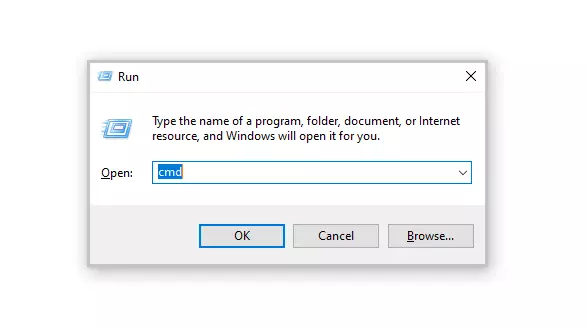
Step 2: In the prompt window, select 'Yes' to allow Command Prompt to make modifications to your device.
Step 3: Now it's time to unregister the DLL file from your computer. Type in or copy and paste the following command, then press Enter,
regsvr32 /u FREETYPE.DLL

Note: Replace vcruntime140.dll with FREETYPE.DLL
Step 4: Next, you need to re-register the file. To do this run the following command,
regsvr32 FREETYPE.DLL

Note: Replace vcruntime140.dll with FREETYPE.DLL
Step 5: Exit the Command Prompt and run the application again.
4. Reinstall the Latest Visual C++ Redistributable 2015 - 2022 for Visual Studio
The most commonly used solution is to re-install Microsoft Visual C++ Redistributable to fix DLL errors. Follow the steps mentioned below,
Step 1: To access the official page from where Microsoft Visual C++ Redistributable can be downloaded, please click on the link provided here
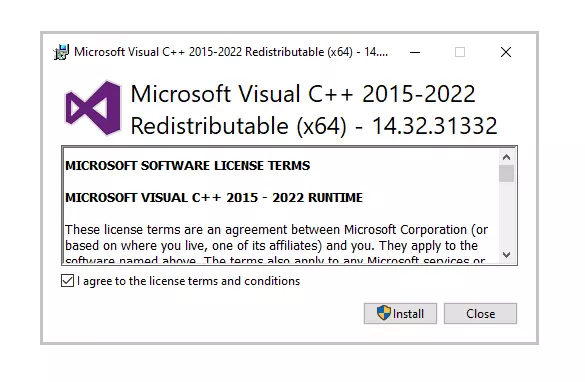
Select 'Install'. The installation will begin and will take a couple of seconds to complete.
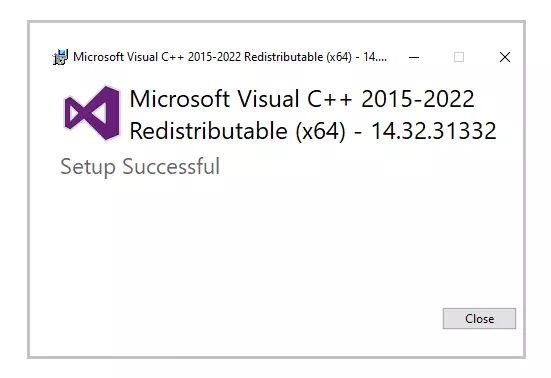
Step 2: Alternatively, you can also download it from below based on the version of Windows,
Download x86 version from here
Download x64 version from here
Step 3: Once you've selected the file, proceed to download. The download may take a while, depending on your internet connection speed.
Step 4: Once the download is complete install the downloaded file. When the installation begins tick the 'I agree to the license terms and conditions' box and then click on 'Install'.
Step 5: It may take a few minutes for the installation to finish. Once the installation is completed restart the computer and launch the program again to see if the DLL error is fixed.
5. Run System File Checker (SFC) Scan
Step 1: To open the Run utility, press Windows + R on your computer. Enter 'cmd' in the input area and then press Ctrl+Shift+Enter.

Step 2: Select 'Yes' in the pop-up window to open the command prompt in administrator mode.
Step 3: Next, enter the below command and press Enter to execute it,
sfc/scannow
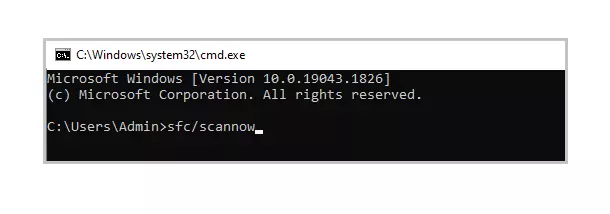
Step 4: This command will try to search and fix corrupt system files (including DLL files). Once the process is complete, you can check the log file created in the path shown in the command prompt. If in the log file you find details of the fixed DLL File then you can run the application again.
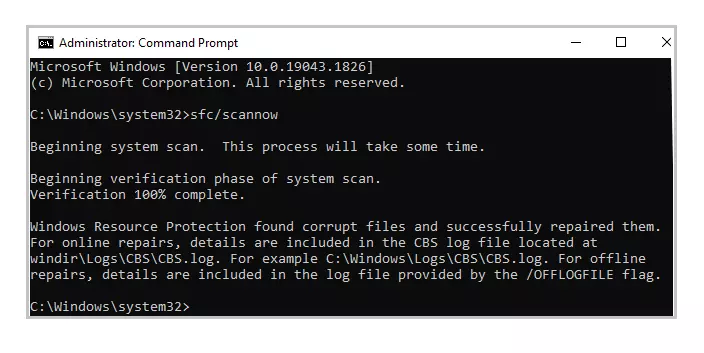
6. Reinstall the Program that cannot be launched
Step 1: Open Control Panel and click on 'Uninstall a program' under 'Programs'.
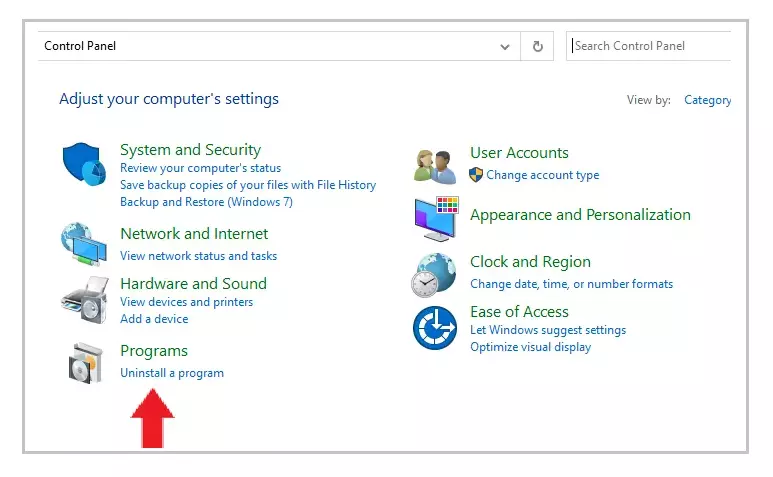
Step 2: Search and find the program you're experiencing problems with and click on it.
Step 3: Then click on the 'Uninstall' button, and proceed to continue with the uninstallation procedure of the application.
Step 4: Reinstall the program from its source. Either download the setup file or if you already have it then run the installation again to check if you can run the application this time.
7. Update drivers
In some cases, DLL errors can occur due to drivers. If the DLL error message appeared during or after you installed a program, then first update your drivers to the latest version.
Alternatively, there is also a possibility you might face the DLL error after updating drivers. In such a scenario, you need to roll back the driver to the previous version.
There are two ways to update drivers,
Method 1: Automatically Update Drivers
Step 1: Use a tool like Outbyte Driver Updater that automatically searches for missing and out dated drivers in your system and updates it. You can download the tool from here
Step 2: Download time depends on your internet speed connection. Once the download is completed start with the installation of the tool.
Step 3: Launch the application.
Step 4: Inside the application run update. Then, the Driver Updater tool will scan your computer for out dated and missing drivers.
Step 5: Finally, select the drivers and click update.
Method 2: Manually Update Drivers
Step 1: Go to the Taskbar search box – enter the text Device Manager and select Device Manager.
Step 2: Select the hardware device that needs to be updated. Expand the selection – select the device, right-click and select 'Update Driver'.
Step 3: Choose the 'Search automatically for drivers' option.
Step 4: If the latest drivers are found then they will be installed automatically.
Step 5: Sometimes, Windows might not be able to find the latest driver. In such cases, the user can visit the manufacturer's website, search for the driver, and instructions on how to proceed with the installation.
8. System Restore
In this method, your PC needs to be restored to its earlier version when it was working without any error. There is a chance the new updates to your PC caused the error, so the user must remove the new updates and roll back to a previous version.
To apply System Restore, first, check if you have a previous backup of your system. To check this,
Step 1: Begin by clicking on the start button.
Step 2: To access the System Properties window, search for 'Create a restore point' and click the first result.
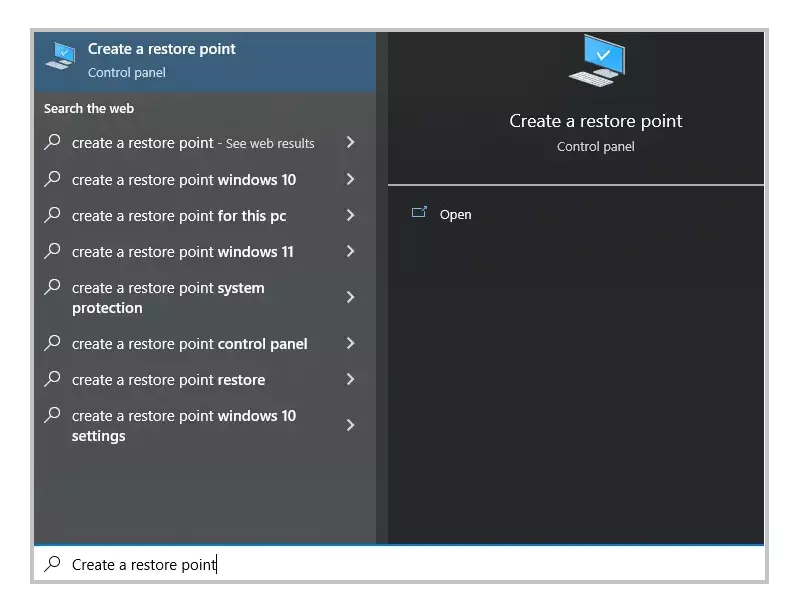
Step 3: Under the 'System Protection' tab select the 'System' drive. 'Protection' should be turned on for this drive.
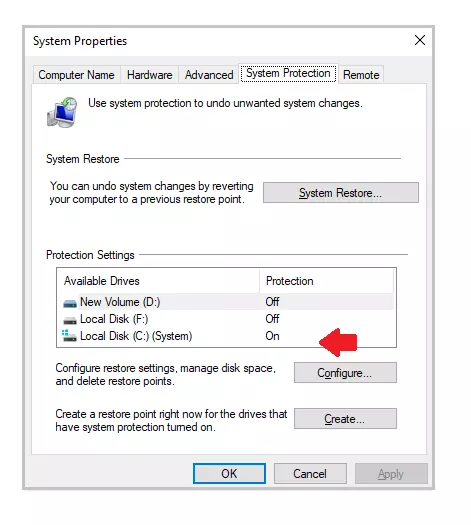
Step 4: Select 'System Restore' and click 'Next' on the initial screen
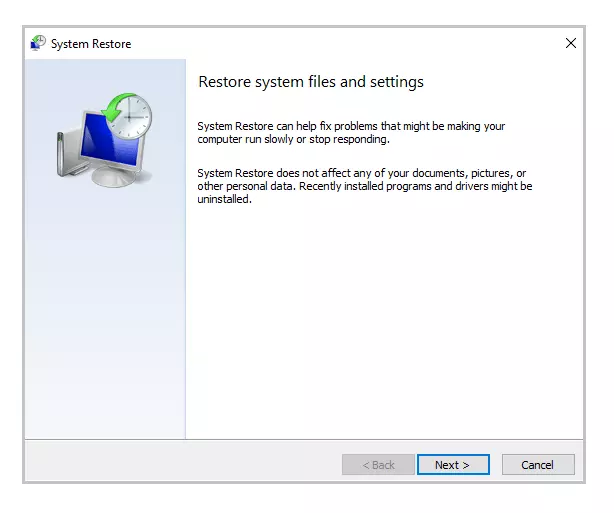
Step 5: A list of restore points will be displayed. Select the restore point when your application was running correctly without any error. Then select 'Next'.
Step 6: Review your selection and click 'Finish'. If a warning window pop-up appears then select Yes'.
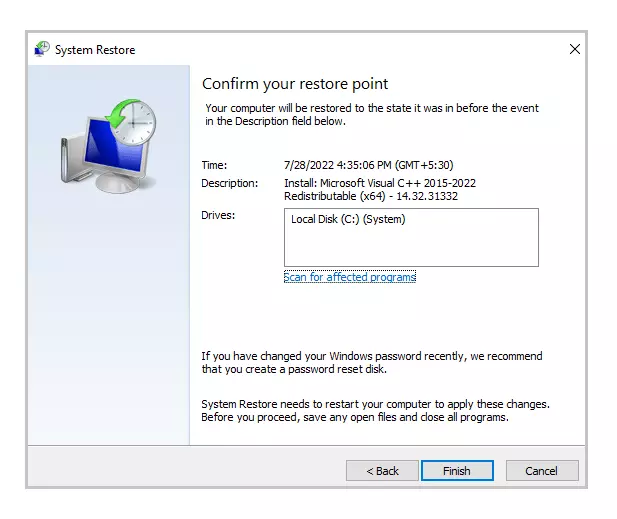
Step 7: The System Restore will begin and your PC will restart once the process is complete. When you log in again, you will see a notification that the System Restore is complete. Now, you can run the application again to see if the error is fixed.
Note: If System Restore was not set up earlier or you've never backed up your PC before then this method might not apply to you.
9. Update Windows
FREETYPE.DLL missing issues have been reported by several windows users to disappear by upgrading to the latest edition of Windows.
Step 1: Go to settings by selecting Start > Settings or using Windows + I shortcut
Step 2: Open the 'Update and security' option.
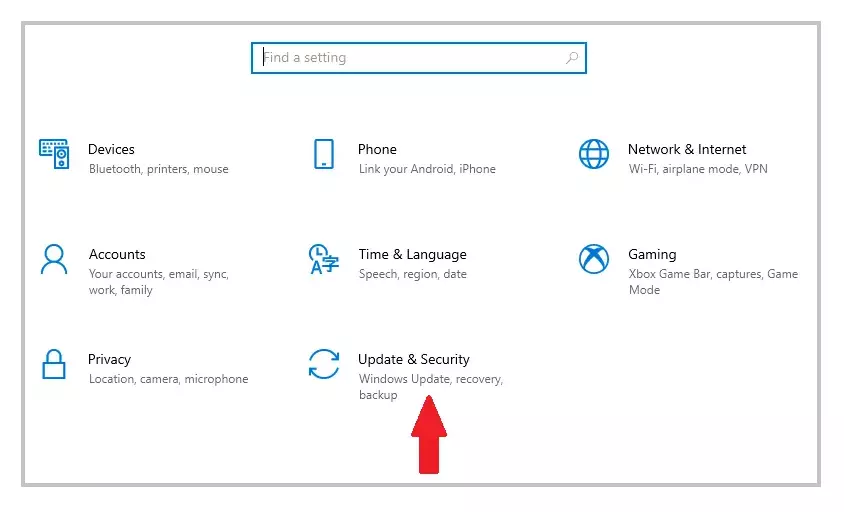
Step 3: See if there are any new updates by clicking on 'Check for updates.'
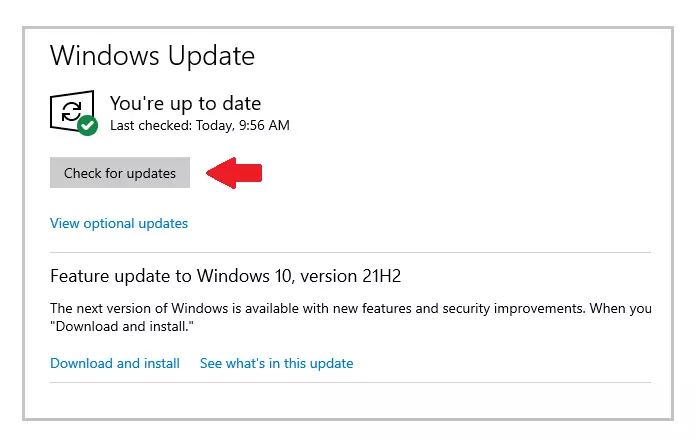
Step 4: If a newer version is discovered, then the windows update will download and install to the latest version.
Step 5: After installing the newest version, run the program again to check if you face the FREETYPE.DLL was not found error.
Following these steps should have definitely helped you to fix the missing FREETYPE.DLL error.

